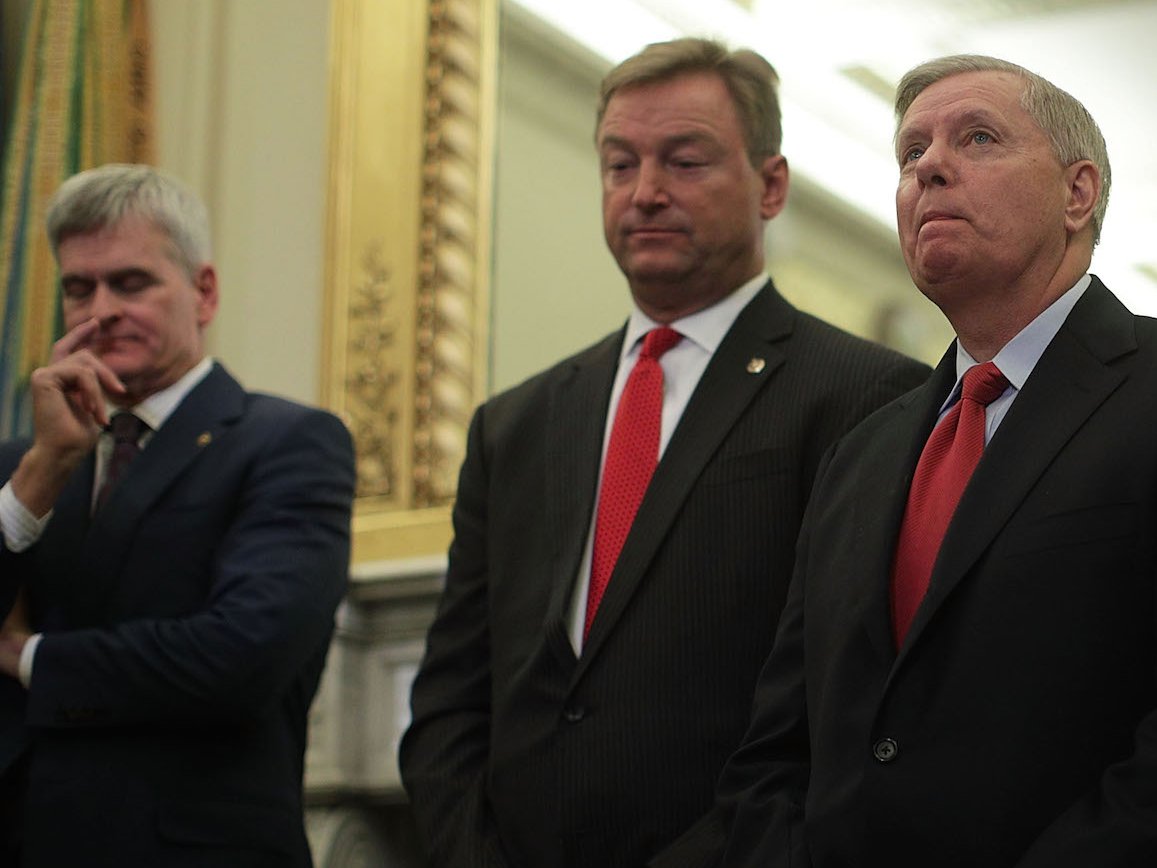 Alex Wong/Getty Images
Alex Wong/Getty Images
Republican senators are hurtling toward a vote on a healthcare bill by the end of September. But as they rush to get it to the Senate floor, they seem to be confused about what exactly it does.
Not only is there no score from the nonpartisan Congressional Budget Office (and there won’t be a full one before a vote), but many of the GOP senators who support the bill also seem to be unable to articulate its implications.
Jeff Stein of Vox asked nine Republicans about the policy implications were of the new Graham-Cassidy-Heller-Johnson (GCHJ) legislation. Most answers indicated the senators favored a repeal of the Affordable Care Act and a vague notion of handing power to states.
For instance, Sen. Pat Roberts of Kansas compared the GCHJ to “the last stage [coach] out of Dodge City.”
“I’m from Dodge City. So it’s the last stage out to do anything,” Roberts told Vox. “Restoring decision-making back to the states is always a good idea, but this is not the best possible bill — this is the best bill possible under the circumstances.”
Roberts also compared the bill to the final scene of “Thelma and Louise,” the film in which the titular character drives a car off a cliff to avoid being captured by police.
“Look, we’re in the back seat of a convertible being driven by Thelma and Louise, and we’re headed toward the canyon,” Roberts said.
“So we have to get out of the car, and you have to have a car to get into, and this is the only car there is,” he said.
While the bill does provide federal funding to states in upfront block grants instead of matching a percentage of funding after it has been spent, an analysis by healthcare consulting firm Avalere showed the bill would also cut the total amount spent on healthcare by the federal government by $215 billion through 2026.
Additional analysis has showed the bill could loosen protections for people with preexisting conditions and undermine some individual health insurance markets. But the lack of a CBO score provides an absence of official certainty about the legislation’s potential impact.
One GOP aide admitted to Axios’ Caitlin Owens that the members of the party are unsure about the GCHJ’s effects.
“If there was an oral exam on the contents of the proposal, graded on a generous curve, only two Republicans could pass it. And one of them isn’t Lindsey Graham,” the aide said.
Other senators say they are still evaluating the bill, just 10 days before it would need to be passed through both chambers of Congress to become law.
“What I’m very focused on as we speak is figuring out the dollar amounts, frankly, and the formula and how it impacts my state,” Alaska Sen. Dan Sullivan told reporters.
The other Alaska senator, Lisa Murkowski, who is seen as a major swing vote, also told reporters she that what she was trying to “figure out is the impact on my state.”
Others argue a more political imperative for the legislation: Republicans talked about repealing Obamacare constantly for seven years, and this attempt will likely be the last chance before the 2018 midterm elections.
“If we do nothing, I think it has a tremendous impact on the 2018 elections,” Roberts told Vox. “And whether or not Republicans still maintain control and we have the gavel.”
Sen. Chuck Grassley also told Vox that he wanted to return power to the states, but addressed the political issue as well.
“The political answer is that Republicans have promised for seven years that we were going to correct all the things that were wrong with Obamacare, and we failed the first eight months,” Grassley said. “This is the last attempt to do what we promised in the election.”













